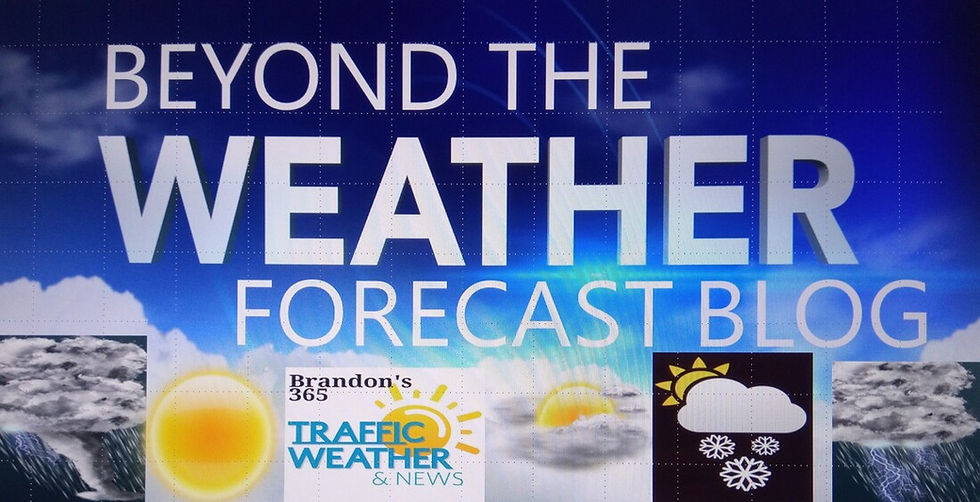Beyond The Forecast: Why is it more cloudy usually in the fall and winter?
- Brandon Shipp

- Mar 21, 2021
- 1 min read

From late-fall through winter, the sun is lower in the sky, striking the ground at a smaller angle and producing less heat. The longer nights and shorter days often causes the air to be colder. As the coldest air settles to the ground, a layer of warmer air above it causes the air to be stable. Normally the atmosphere cools as you gain altitude but in a temperature inversion, it actually warms. This layer of warmer air above the cold air causes the air to be more stable. Clouds which form near this layer tend to be stratiform or more horizontally spread out and long-lasting. During colder weather, temperatures are more likely to reach the dew point temperature, producing saturated conditions and clouds are more likely to form. Also, a more active storm track causes storm systems to move through more often, making clouds more common.





Comments